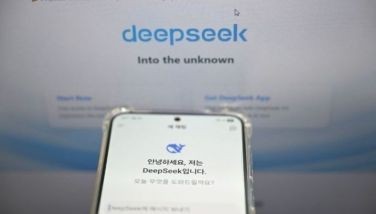Email blast blows up
One of the biggest insurance firms in the world sent shockwaves to 1,300 of its worldwide staff who received a curt email telling them they have been fired – with instructions to return all company property upon leaving the premises and to refrain from divulging confidential information. Apparently, Aviva, the world’s sixth biggest insurance company, dismissed its entire global investment arm by mistake when a human resources employee hit the group button instead of sending it to just one unidentified employee who was the unfortunate recipient of the dismissal message.
It took a full 25 minutes before the error was noted – prompting the HR department to again issue another mass email apologizing for the mistake and the confusion. But by then, panic had already set in for all the 1,299 unintended recipients, since the company had announced in January that it would cut down its global workforce by about 12 percent. (Aviva says it has 36,600 employees with 43 million customers worldwide and manages assets of around $420 billion.) The insurance firm is also facing major challenges with its annual net profits dipping by 85 percent primarily driven by the economic crisis in Europe.
Last week, Aviva also announced that three of its most senior directors for the European, North American and asset management units were leaving. Add to that the disclosure that the UK firm is pulling out its operations in the United States as part of its strategy – a move that would mean over £1 billion in losses for the insurance company. No doubt the incoming new president will have his hands full trying to overturn a global entity whose shares have been described as “underperforming” by about 25 percent over the past year.
In any case, the accidental email blast left the UK-based insurance firm wide open for criticism for doing the sacking – even though it was only one poor employee – in a coldly impersonal manner. The company’s “easy to contact us online, by phone or by post” line on its website has also been the subject of sarcasm and ridicule, with people saying Aviva also finds it easy to fire people online, by phone or by post. A company spokesperson described the email blast as a “clerical error” – prompting calls for the sacking of the HR employee who pressed the wrong send button.
Wal-Mart bribery probe
Still on the subject of emails and firing, several top executives of Wal-Mart may find themselves getting the pink slip in the wake of a bribery scandal involving the retail giant’s operations in Mexico. A New York Times story exposed the alleged payoffs that company executives made to Mexican government officials to hasten the processing of permits for Wal-Mart in Mexico in 2005.
According to the story, an employee of Wal-Mart de Mexico or WalMex, who has since resigned, reportedly sent an email alleging that bribes were given government authorities to facilitate the opening of stores in Mexico City, resulting in an internal investigation that revealed a paper trail of suspected payoffs amounting to more than $24 million. Some of the activities allegedly involved shortcuts to zoning and environmental regulations and other bureaucratic “hurdles’ in order to beat the competition. However, Wal-Mart officials allegedly put a lid on the investigation and failed to disclose it to Mexican law enforcement authorities and the US Department of Justice and Securities and Exchange Commission.
Wal-Mart said the activities disclosed in the New York Times article were more than six years old, and that they have already taken steps to strengthen company compliance to the US Foreign Corrupt Practices Act or FCPA, a 1977 law that prohibits US companies from engaging in bribery or paying kickbacks and similar violations in order to secure business in foreign countries. In recent years, the US government has adopted a tougher stance in enforcing the FCPA, with many corporations forced to fire top executives and pay hefty settlement fees.
For instance, a popular cosmetics company sacked its vice chairman on allegations that bribes were paid in China, while a top executive of a Houston-based construction and engineering company (with previous ties to a top oil and energy company in the US) was sentenced to over two years in prison for bribing Nigerian officials to win a contract.
What’s even worse for Wal-Mart is the revelation that top officials were aware of the bribery, and that the WalMex official – the general counsel to be exact –tasked to conduct the probe on the alleged payoff was himself implicated, which is probably why the result concluded that “no clear evidence” pointed to such bribery, insiders claimed. Wal-Mart said it has removed its general counsel in Mexico and that it is “committed to having a strong and effective global anti-corruption program in every country” in which it operates. “If allegations are true, it is not a reflection of who we are or what we stand for. We are deeply concerned by these allegations and are working aggressively to determine what happened,” the company stated, adding that it is now working voluntarily with the US DOJ and SEC.
Mexico is perceived to be one of the most corrupt in the world – so much so that even the Pope had condemned the corruption and the drug trafficking during his visit to the city last month.
Spy tidbit
Former Solicitor General Frank Chavez sent us an email regarding the Regional Trial Court of Makati’s decision upholding his motion to dismiss the damage suit filed against him by the CVC Law, also known as “The Firm.” The Court sustained Chavez’s argument that the charge was “not a valid independent civil action.
***
Email: [email protected]
- Latest
- Trending






























